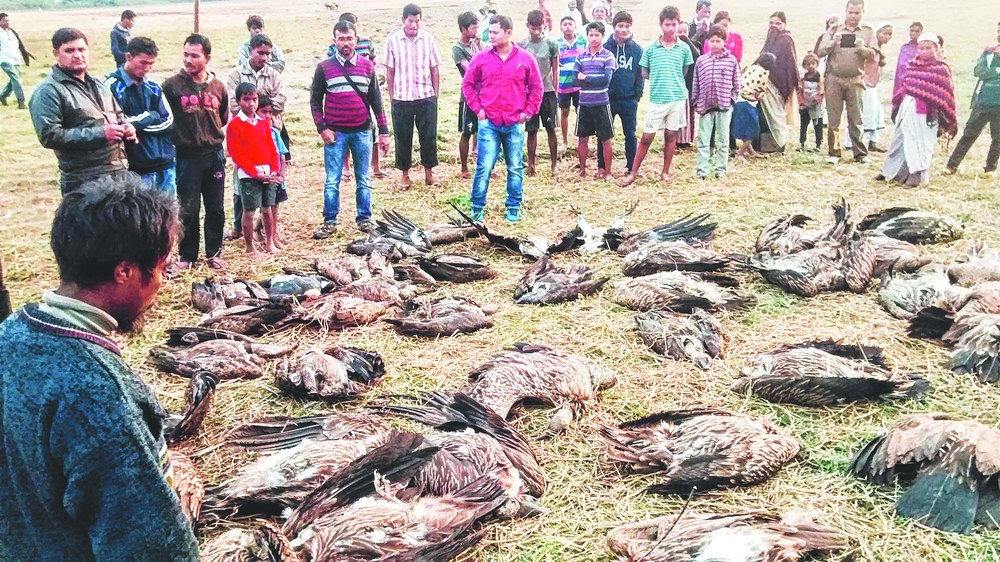
Borjhar, Sept. 2: Vulture conservationists have expressed happiness over the Centre's restriction on human formulations of diclofenac vials to a single dose.
The Union ministry of health and family welfare through a notification issued on July 17 under Drugs and Cosmetic (Amendment) Rules, 2015, has instructed that diclofenac formulation for human use will henceforth be available only in a single dose of 3ml vials.
Diclofenac is a non-steroidal anti-inflammatory drug widely used to treat livestock, which is the major cause of decline of vulture population in the Indian subcontinent. The drug is effective in treating pain and inflammation in cattle and humans but is toxic for vultures once they scavenge on diclofenac-administered cattle.
Diclofenac was banned from veterinary use in the country in 2006 because of its lethal effects on vultures, which fed on the carcasses of the cattle that were treated with diclofenac.
Sachin P. Ranade, centre manager of Rani-based Vulture Conservation Breeding Centre in Kamrup district, said 99 per cent of the deaths of oriental, white-backed, slender-billed and long-billed vultures are because of diclofenac.
"We all know that there was a ban on veterinary use of diclofenac since 2006 which stopped the use of the drug on cattle. But this could not be stopped completely. The reason was human formulation of the drug was used on cattle wrongfully. As the multi-dose vials provide 30 to 100ml diclofenac, it could be used easily on cattle. But now these multi-dose vials are banned and we are hoping a positive outcome," he said.
According to UK-based Royal Society for the Protection of Birds, the governments of Bangladesh, India, Nepal and Pakistan have banned veterinary formulations of diclofenac between 2006 and 2010. Recently, experts have recorded a slump in the decline of vultures as a result of the ban. However, human formulations of diclofenac are still widely available and used illegally to treat livestock, the carcasses of which are the main source of food for the vultures in South Asia.
Surveys by Bombay Natural History Society, Mumbai, had revealed that multi-dose vials of the drug meant for humans were still being used on cattle.
Chris Bowden programme manager of SAVE (Saving Asia's Vultures from Extinction) said, "Despite diclofenac being illegal for veterinary use since 2006, human formulations have been made readily available in large vials by irresponsible drug companies, making it cheap and easy to use illegally to treat cattle . This ban means that the large vials can no longer be manufactured and sold, making it more difficult to use illegally on animals and thereby removing it from the primary source of food for Asia's vultures. This is a huge step closer to bringing vultures back from the brink of extinction. Vulture monitoring will need to continue to show what effect this ban will have in the longer term," the organisation said.











